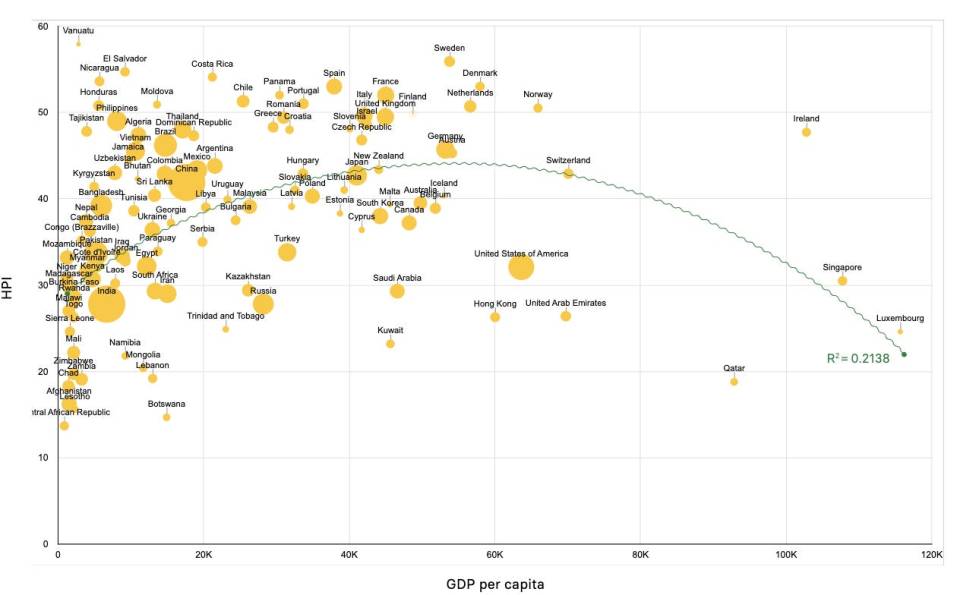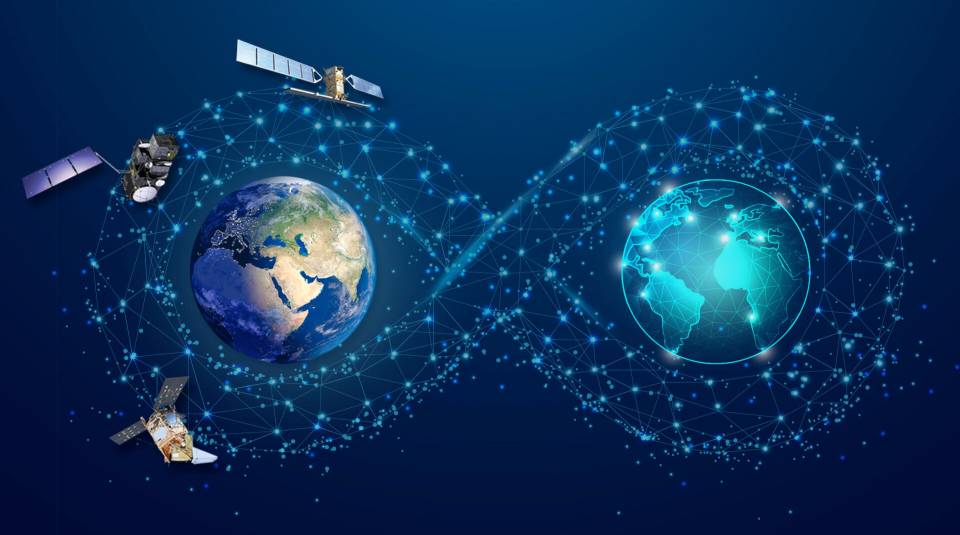Strange things are happening. The once taken-for-granted nature is being mystified again through science. Scientists are trying to communicate with animals we are trying to understand the start of life, and we are attempting to simulate the immense ecosystem of the Earth in a digital twin with supercomputers. Whereas science always seemed to take the magic, and perhaps even the fun, out of a phenomenon, now it seems almost the opposite.
Thanks to this wave of insights and breakthroughs, it is becoming increasingly clear how the natural world is connected to that of humans. In fact, that distinction is outdated. We are nature (duh?!). Economy and ecology are as intertwined as our microbiome and our thinking. And what we produce influences our environment, and our environment in turn influences how we feel, even correlates to our IQ, and even the quality of our ideas and decisiveness. Taking care of yourself, your loved ones, your organization and the earth is essentially the same thing.
I guess you can call it the great unraveling of the Circle of Life. Once sung by Elton John in the children’s film The Lion King, now a grateful research subject for AI scientists and biologists. On this front line, questions like: “Should we base AI more on the brain of a dragonfly?” are normal. Natural Intelligence is placed alongside Artificial and Human Intelligence.
It’s amazingly inspiring and thrilling to chase all these insights. It’s crazy and mystical, and at the same time it feels like we are opening open doors. Still, these insights raise new ethical questions & possibilities. Can we turn these insights into wisdom or will we keep doing what we are doing? And thus getting what we’ve been getting?
- Human Intelligence: Happy Planet Index
- Natural Intelligence: Earth’s Digital Twin
- Artificial Intelligence: Being a Whale [Movie]
1) Happy Planet Index
Human Intelligence
The Happy Planet Index is a measure of the ecological efficiency of delivering human well-being. It reflects the average years of happy life produced by a given society, nation or group of nations, per unit of planetary resources consumed.
So we are basically talking about this equation:
Happiness score / footprint per citizen = Happy Planet Index
A very interesting and valuable concept. Of course, metrics are always a simplification of reality, but such simplifications are necessary. Reality is too vast to fully understand, so I’m very pleased with this concept.
The report of 2024* came out in May, some personal key takeaways:
- Costa Rica achieves some of the highest levels of wellbeing in the world despite a carbon footprint that, at 4.4 tonnes CO₂e per capita, is only a little above a fair consumption level.
- European nations have risen up the rankings of the HPI in recent years,and Sweden has led the charge. That the nation has excellent average wellbeing outcomes (life expectancy of 83 years and average self-reported wellbeing of 7.4 out of 10, even during the COVID-19 pandemic) is no surprise. Sweden was the first country in the world to implement carbon pricing, and today less than 1% of electricity in the country is produced from fossil fuels.
- While the researchers say we things are more complex than the following graph, I can’t help myself but to look for my country, the Netherlands.

*Based on data from 2021
2) Earth’s Digital Twin
Artificial Intelligence

DestinE, short for Destination Earth, is a flagship initiative of the European Commission to develop an extremely accurate digital model of the Earth to model, monitor, and simulate natural phenomena, hazards, and related human activities. The official launch of the system was in June 2024, but the digital twin will not be fully completed until 2030.
Since the initiative is considered by the European Union as a strategic tool to achieve the goals of the dual green and digital transition, the project has access to some of the world’s largest supercomputers. If the supercomputers and digital simulations perform well, predicting the future will come a step closer. Computer scientists can test various hypothetical scenarios, such as evaluating whether our Dutch dikes will still be effective in holding back water in 2050, assessing the impact of building wind farms, and determining where different crops will best thrive in the future.
3) Being a Whale [Movie]
Natural Intelligence
How would it feel like to be a whale? Or a colony of ants, or a forest? The following video will show you.
—> “This speculative documentary transports viewers to the mid-21st century, where a groundbreaking device enables humans to experience the world through the senses of non-human life forms. The film intertwines four narratives: the expansive mind of a sperm whale, the intricate society of an ant colony, the gut-brain connection, and the network within a forest. The film aims to redefine our traditional views of intelligence and highlight nature’s interconnectedness.”
That’s it for now. I hope you learned something new and I wish you the best adventures, thought-provoking questions and exciting discoveries!

 English | EN
English | EN 